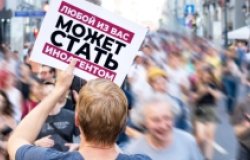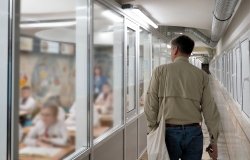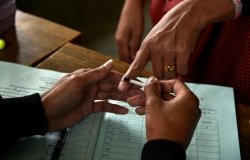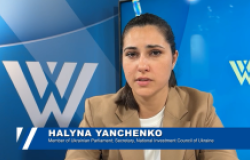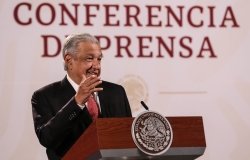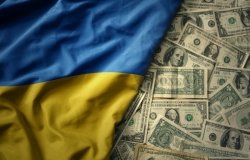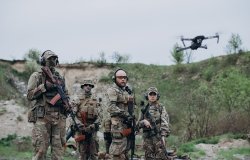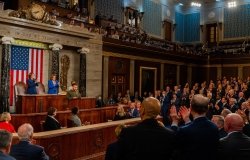Preserving Cold War History through Dialogue
Centerpoint talks with Keith Allen, a historian and author, who spent the summer at the Wilson Center helping the Cold War International History Project plan a conference on Cold War commemoration, that will take place in September.
Keith Allen was raised in a small, rural town in Ohio where, when not traveling with his parents and grandparents, he spent much of his free time reading and discovering a profound interest in the past. Today, Allen has pursued his passion through scholarly research, museum work, and teaching.
Most recently, Allen spent the summer as a public policy scholar at the Wilson Center working with the Cold War International History Project (CWIHP) to help organize a pioneering international conference on Cold War commemoration.
The two-day conference, scheduled to occur September 8-9 at the Wilson Center, will convene distinguished scholars and museum directors from around the world, historical preservationists, foundation representatives, government officials, and Cold War veterans' advocates. Participants will discuss what of the Cold War should be kept, consider how these properties might be interpreted in light of the best scholarship, and suggest how this era can be brought to life for 21st-century museum patrons.
"As personal reflections fade," said Allen, "what's preserved will shape the way people perceive this period in history."
Conference panels will delve into such issues as preserving and interpreting declassified documents, honoring veterans, and unraveling new scholarship in Cold War history—exploring a range of historical issues from high-tech weapons production to political repression. Allen and CWIHP Director Christian Ostermann envision the conference—a new CWIHP initiative—as the first step toward creating a sustained dialogue among scholars and those charged with the preservation and interpretation of America's longest conflict.
Allen has extensive experience in fostering relationships among scholars and practitioners. Allen has served as senior research associate on the Bergier Commission, collaborating with historians and financiers to decode classified Swiss Bank records from the 1940s. He previously worked as the director of web content at the U.S. Holocaust Memorial Museum in Washington and as an adviser to cultural agencies and museums in Germany and Switzerland. He also has published a book, in German, on the history of the midday meal in Berlin.
"The missile silos, fallout shelters, and weapons labs of the Cold War have long animated the American imagination, a fact one can easily document in the visual media of the past two generations," Allen noted. "Less well known are recent initiatives to transform nuclear weapons facilities-the very stuff of apocalyptic films and perhaps not-so-futuristic terrorist fantasies-into tourist destinations."
"The principle objective of the conference is to ensure that the broadest historical perspectives receive a full hearing," said Allen, though he insists the benefits of a sustained dialogue are as great for scholars as they are for museum toilers. Without a clearer sense of what of the past in our time is being remembered and why, he insists, academics are more likely to talk past patrons than to profit from their shared interest in yesterday's events.
